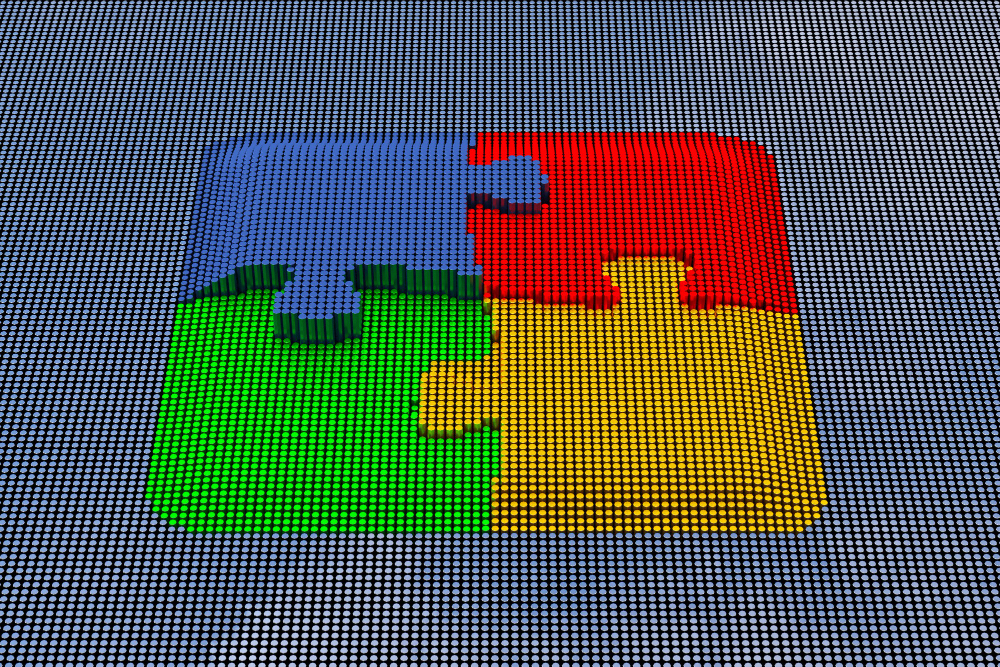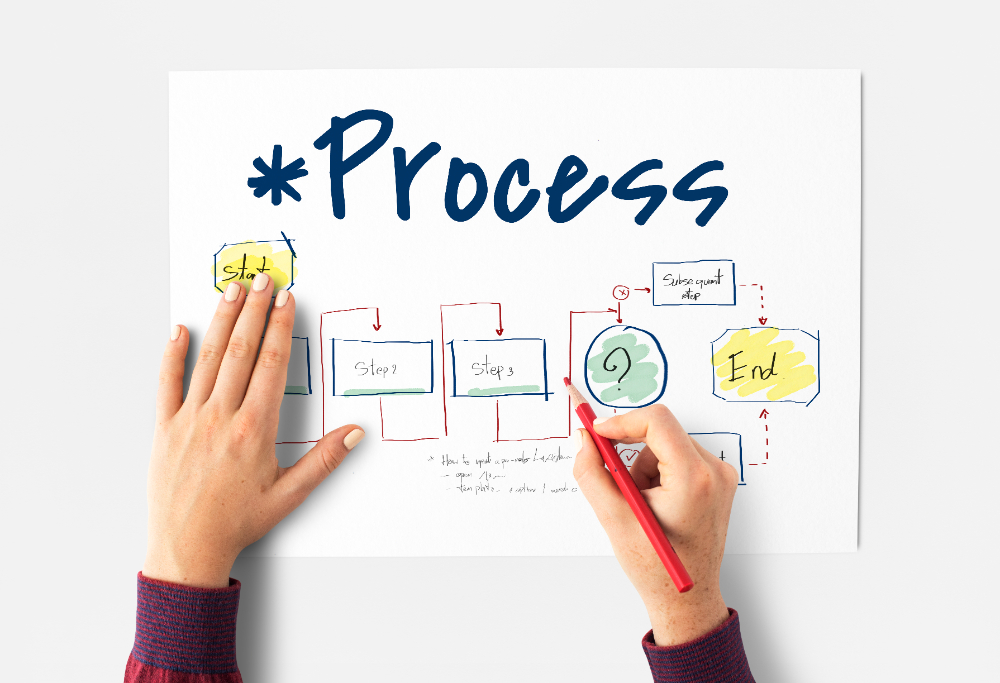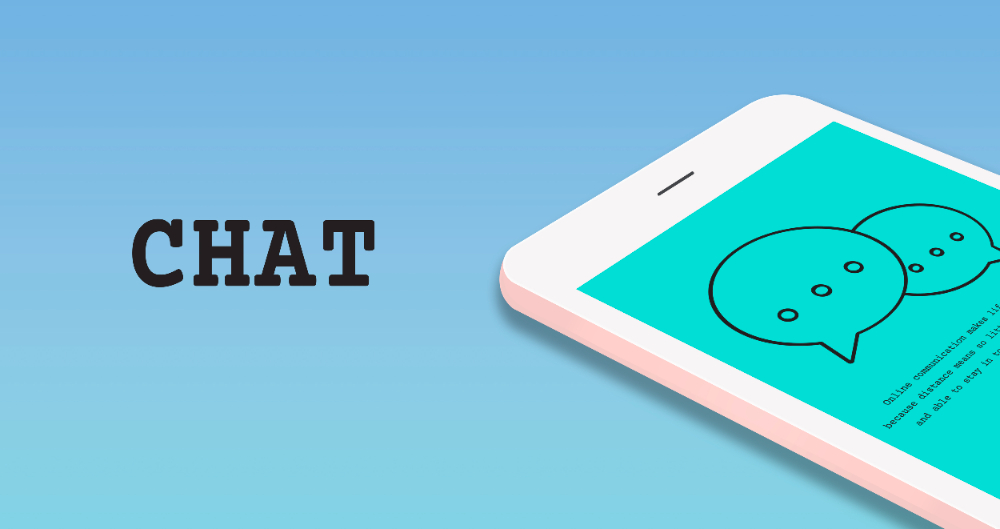Table of Contents
- What is Rational thinking?
- 1. Definition: Logic, Coherence, and Fact-based Evaluation
- 2. Rational vs. Intuitive Thinking: Daniel Kahenman Educates
- 3. Problem of Clear Razors: Cognitive Biases
- Improving the Quality of Your Personal Decisions
- 1. Decision Making in Light of Emotions
- 2. Personal Finance: Remain Within The Bound
- 3. Case Study: Granting Reasoning a Great Influence of Financial Well-Being
- Increasing Professional Competence Using Rationality
- 1. Professional Decision-Making: Risk Assessment and Strategy Development
- 2. Evaluation of Alternatives: Solving Non-Routine Problems: Strategies and Instruments
- 3. Empirical Evidence: Rationality in Business
- Improving the Quality of Your Relationships
- 1. Active Listening with a Factual Perspective Towards Conflicts
- 2. Providing the Information Without Judging the Other Person’s Values
- 1. Inquiry Related To Anxiety-Inducing Beliefs
- 2. Sound Understanding Of Information As Well As An Incisive Approach
- 3. A Calm Analysis Of Stress And Anxiety
- Tactics to Incorporate Rational Thinking on a Daily Basis
- 1. Easy Approaches: Seeking Validation, Mind-Mapping, Keeping a Journal
- 2. Training and Resources: MOOCs, Books, Specialized Podcasts
- 3. Developing a Habit of Self-Development Online
- Conclusion: The Application of Rationality will lead to a Richer and more Peaceful Essence of Life
Rational thinking appears to be in high demand in a world that is increasingly emotionally overcharged. Rationality does not go hand in hand with Emotionless Yeti sitting in a hushed launderette. Rationality for the most suits, feelings and has an intense way of processing them. Anything and everything is at arms reach today, with a flip of the finger a vast pool of information emerges that is often conflicting and inundated with unrelated opinions(fragmented, irrelevant and hard to process)."It is important to note that the modern era has an increased amount of knowledge and resources at people’s disposal. Once there, an individual faces multiple sources of opinions, journals, podcasts, social media posts, and videos that are simply limitless. The special power emerges of discernment that's crucially important to evaluate in modern eco-system’s propaganda…the intellectual revolution which provoked sheer emotional arguments blurring the context and superficialized the ideas.”
Our elusive world has undergone profound changes that have influenced the way we think, process, analyze and most importantly make decisions, which are rarely absolute, and understanding them can prove to be significantly complex. Rationality devotes its take to an organized way of thought, scouring through information and then making reasonable decisions based on the above factor revolving around structure to wishful, and emotional biasing.
This paper aims to explain how a rational perspective can enhance different areas of one’s life. For instance, taking a rational perspective would help one spend better, make better career choices, have better relationships and stay psychologically sane among other things. By employing the right tools, up-to-date and credible information, and thorough reasoning, one is more likely to create a more satisfying, clear and stable life.
What is Rational thinking?
Now in order to enjoy the benefits of rational thinking one must fully understand what it entails, in simple terms rational thinking contrasts with the overly romantic view of emotions to the opposite of, having no feelings. Rather than being told to detach from one’s emotions, rational thinking encourages one to gather reliable and accurate information and perspective to different situations thereby constructing their thoughts in a structured manner utilizing facts.
1. Definition: Logic, Coherence, and Fact-based Evaluation
It’s also important to note that rational thinking entails some essential components, for instance being logical, rational being a reasonable principle-based concept instead of vague or randomness. Furthermore, rational thoughts don’t sound random or take intermingled aspects of any concept, they are well placed and composed as mentioned earlier, it has structure to it. But don’t forget the most important aspect of rational thinking is the processes by which assumptions and stereotypes are created, rather facts.
2. Rational vs. Intuitive Thinking: Daniel Kahenman Educates
Daniel Kahenman argues that there are two types of thought processes that exist: system one and system two, system one being fast, emotional, intuitive, while system two is the opposite and requires more cognitive effort. He defines rational with system two and fast reactions with system one. Whereas the first system enables us to act quickly and sometimes irrationally, the latter is more calculated and thorough and considers all aspects before making a decision. This more methodical approach helps avoid common intuition-driven errors, such as snap judgments and unfounded prejudices.
3. Problem of Clear Razors: Cognitive Biases
Unfortunately, we are human, we are complex and as a consequence, our thoughts are never free from interferences known as thought biases. Cognitive Fallacies that have resulted from Kahenam’s and Tverskey’s work are dangerous. They come in numerous types such as, the preferring of bearish ideas over optimistic ones (confirmation fallacy) or the placing too much reliance on prompt information (availability heuristic).
Rational thought works to mitigate the influence of these biases. We are able to lessen their effect if we take a systematic approach to validating our hypotheses and then contrasting our intuitions with objective information. This work, while grueling, is core to being rational: realizing that we have some cognitive flaws and that there is always work to be done to remedy it.
Improving the Quality of Your Personal Decisions
The practical application of rational thought is best seen in daily activities, especially in how one makes decisions. Rationality comes into play when addressing business or investment decisions, restructuring one’s lifestyle, and allocating one’s time. Having a clear and rational mindset in approaching challenges helps in making decisions getting easier. Deciding to analyze every possible course of action before diving head first into them means that one intends to make well thought out decisions.
1. Decision Making in Light of Emotions
Emotions can either be an advantage or a drawback and, at times, can impair our judgment. For instances such as, acting out in spite or even animosity; the reaction especially in anger, fear or excitement will definitely end up causing long-term harm. But when it comes to moderation and rational thoughts, it can be said that stepping back and analyzing the situation from all contexts is guaranteed to yield in decisions that are desirable to an individual's preferences and morals. Hence there is no need of strictly suppressing an emotion, instead it can be utilized wisely in conjunction with other elements and frameworks that lead to informed decisions.
2. Personal Finance: Remain Within The Bound
When trying to grasp how rational thinking works especially in financial management, one strong statement that comes about is, utilization of habit or emotions won’t be enough any longer. Nurturing emotions and maintaining impulsive buying under control is only one barrier that will remain erected. A vivid example can be taken that involves buying imaging a quality enhanced image, analyzing the amount it will cost at the end and its total utility to the consumer. Over time due to restraint in spending a sense of satisfaction will be developed where to a certain extent a feeling of surpassing a prior limit will bring about feeling of security.
3. Case Study: Granting Reasoning a Great Influence of Financial Well-Being
Reason’s Enigma gives importance to reasoning in the manner in which people handle weighty information by researchers Hugo Mercier and Dan Sperber. Consider a reasonable approach when making financial decisions avoiding baseless assumptions as well as excessive reliance on instincts. Balancing different ways to save money, seeking advice from trustworthy sources or making use of appropriate financial techniques all contribute to getting better and more reasoned decisions which are more congruent with one’s goals and existing limitations.
To summarize it all, reasoning is able to help one make better decisions for oneself. Ignoring impulses, calculating expenditures, and utilizing objective information will greatly improve how one thinks and acts, which in turn will lead to a more predictable and happier life.
Increasing Professional Competence Using Rationality
Rationality is not the only thing relevant in someone’s private life since it can also act as a strength in manners of a professional career. In an intense job market where competition is fierce efficient decision-making based on facts and thorough analysis is an edge. Whether it is drafting a long term plan, agreeing on a business deal or assessing a potential employment offer a rational approach helps maximize your skills and opportunities.
1. Professional Decision-Making: Risk Assessment and Strategy Development
In a work setting, for one to be capable of working on a task, they ought to be able to navigate the task that has been presented to them and be able to utilize keen judgement over the situation at hand. When dealing with a new assignment, logical thinking entails considering the situation at hand in terms of clearly defined objectives, available means as well as the costs associated, risks and potential rewards. This in turn serves to avert from making decisions that are impulsive and based on a moment in time, such as anxiety about the change. In embarking on thorough planning, the conditions necessary for a more solid, rational career development are set.
2. Evaluation of Alternatives: Solving Non-Routine Problems: Strategies and Instruments
In complex professional environments, problems can arise from any direction and basing your solutions on gut feeling alone most likely will take you to inadequate or half-baked end results. Tools like Logic Drawings, decision trees and Balanced Scorecard introduce a rational mode of thought in that you help structure the problem, gather facts and analyze the data. In doing so, Plato’s advice is adhered to. By creating and engaging in such forms of scenarios, the assumptions that you hold onto become invalidated and the chances of discovering the most feasible solution that meets the boundaries and objectives are greatly improved.
3. Empirical Evidence: Rationality in Business
A 2018 analysis written for Harvard Business Review notes that employees are more satisfied with their work at large corporations that seek stability and growth via Rational Decision Making as opposed to bureaucratic and indoctrinative practices. Such strategies promote a culture of rationality that enhances an organizations firepower and enriches employee satisfaction, fostering New Enterprises who encourage such techniques.
Therefore, to integrate rationality into your professional life allows for greater promotion opportunities while providing heightened spatial mastery over decisions resulting in quicker goal achievement. All in all, it illuminates the idea that rationality in ones line of work can greatly clear and make one’s career fruitful and effective.
Improving the Quality of Your Relationships
Formulating strong and lasting bonds with workplace employees can be challenging due to preconceived notions and emotional ties associated with colleagues. Nevertheless, rational communication can greatly refine relationships and ensure that everyone is on the same beating page, thus ensuring a smoother and clearer path ahead.
1. Active Listening with a Factual Perspective Towards Conflicts
It is fair to note that during a heated conflict, the tendency to become defensive, impulsive, or emotional is almost impossible to avoid. However, rationality suggests that one should take a moment and analyze the facts and standpoints. For example, instead of interpreting a comment as an insult, an individual should consider the facts, context, and aim of the statement. This attitude promotes active listening, better understanding, empathy, and dialogue deeper and more constructive discussions.
2. Providing the Information Without Judging the Other Person’s Values
At times, fuels to misunderstanding can come from miscommunication accompanied with greater assumptions and generalizations. It is judicious to argue on the basis of evidence rather than bringing a value argument to the table as rationality can. When we experience something, saying ‘You never listen to me’ to other party will be less effective than showing them the evidence, facts and details around the incident. Rooting the communication in the hard facts helps the other person to clearly see what is at issue and where the other person position is making it hard to find out a workable compromise.
Mega essays staff is dedicated to ensuring the highest level of satisfaction and wants to cater to all of your needs. Our staff is readily available to answer any issues or queries that you may have, Seven days a week. Whether you need help with academic teaching or applying for scholarships, we have he right set of professionals to meet all the requirements. Needed help with your admissions essay? Reach out to us and we will help you stand out amongst a pile of applicants. We take pride in our quality of work, and strive for perfection, which in return enables us to build a long term and strong relationship with our esteemed clients. Our well educated writers are screened and approved by our experts and are professionals in a wide range of topics which bit proves that our services are legit and extremely beneficial, Working with us guarantees that in goal oriented and result based work.
1. Inquiry Related To Anxiety-Inducing Beliefs
We experience negative feelings because of some beliefs or judgments that we have that this may not be valid, such as believing that a brief glance is a form of reprimanding more so a blame than a glance or assuming that if they are not punctual that they are not also competent is showing narrow minded views. The ability to reason requires consideration of such beliefs, their reality stage, and the adjustment of viewpoints based on more credible information. This procedure, in which many features of belief does not supersede the strength of evidence supporting it, which is CT, is supposed to aid in the alleviation of anxiety and guilt by illustrating that numerous of our concerns are actually unfounded in evidence.
2. Sound Understanding Of Information As Well As An Incisive Approach
Psychology, as an example, is one of those that is conflicted with the idea that abuse of such would provide useable information, and conflict, as some unethical or unpublished information is often not Founded. We earn to afford a Clinical Polus approach, some nationally accredited body such as World Health Organization (WHO) research based epidemiological surveys of literature in order to collect data. Instead of blossoming on the first piece of advice made available, they look forward to evidence based in nature, such as exercise, sleep, nutrition and stress management to enhance the quality of life. The outcome is increased congruence between what you do and what you want , allowing for real growth in wellbeing.
3. A Calm Analysis Of Stress And Anxiety
Rational belief also proposes having tangible plans of action to alleviate negative emotional states. For example, when experiencing stress, one can make a - control or lack of control - list and decision on a course of action with a tangible lever of change. Drawing on ideas from cognitive theory, this approach helps to prevent the ongoing build-up of fuzzy fears or depression. The decision is made based on objective information and realistic evaluation of the situation eliminating undue anxiety and reinforcing psychological strength.
To sum up, rational thinking is not exclusively strategy contemplating so as to achieve a desired wealth or promotion. It is equally constructive in helping one to get issues of one’s head, face one’s apprehensions with actuality and feel normal again. In concentrating on what happens in reality and on scrupulously testing one’s ideas, one can create supportive conditions for the psyche to be more robust in the face of events that happen in life.
Tactics to Incorporate Rational Thinking on a Daily Basis
It is one thing to believe that rationality can positively improve all facets of one’s life, yet another to incorporate it into the differing spheres of life. Thankfully, practicing rational approaches does not necessitate major life alterations. It means practicing new thought processes, being careful with the sources of information, and teaching yourself to look for more rational approaches. Developing a rational approach can help you improve the quality of your decisions and interactions over time.
1. Easy Approaches: Seeking Validation, Mind-Mapping, Keeping a Journal
There are different tools to enhance the ability to focus on the facts or on the things that matter, for example fact-checking. This also means checking for the facts before retrieving such information. When intending to publish a piece, always pose the question, “What is the origin? Is it pertinent?”
Mind-mapping can be beneficial in this case by visually portraying structures that encourages further reasoning reducing inconsistencies. More so, by using the “decision journal,” one can document significant decisions as well as their motivation and later assess their consequences. This method encourages and allows you to see what works for you or what does not within your thinking style.
2. Training and Resources: MOOCs, Books, Specialized Podcasts
Innocent people can obtain aid in developing rational thinking without having to go through it alone. There are lots of tools ready for access:
- MOOCs and E-Learning Platforms: There are logic, critical thinking, and problem-solving courses provided through sites like Coursera or edX.
- Specialized Books: Literature such as Thinking, Fast and Slow by Daniel Kahneman and The Enigma of Reason by Hugo Mercier and Dan Sperber aids in comprehending personal cognition and thinking pitfalls.
- Podcasts and Youtube Channels: Some content creators do rational analyses of current events, different debates, and social issues. By following them, you obtain a critical and systematic approach which will affect your reasoning.
3. Developing a Habit of Self-Development Online
The art of developing rational thought doesn’t have any finishing line. It is, the other way, an iterative process. Every new information, every new decision, and every new error is a chance to refine the judgment capabilities of an individual. Decide and accept you can be wrong, allow evidence to change your beliefs, and urge others to do the same. The cultivation of ICTs in the society to provide stimulating understanding where doubting, asking and organized submission are essential for development and evolution of your thought over the time will be beneficial.
Absolutely, basing rationality on logic does require the necessary tools, the habit and attention to detail however these are small steps to take in along the road of building a complex world within oneself. The more one engages the mind with sorting, analyzing, verifying and prioritizing information, the more simple logic becomes and the more valuable it is during complexities and uncertainties of the world.
Conclusion: The Application of Rationality will lead to a Richer and more Peaceful Essence of Life
Rationality is much more than just a method of how one thinks, for AM rationality is the way of life, the principle that aids you glide through a multifaceted society with poise. All the sections written prior and this would shed light on how rationality embodies the decision making: be it with finances, career opportunities, or managing relationships. These examples are focused on how a person engages with rational approaches and their importance. Having a rational approach proves inevitable because it helps differentiate and filter what is essential versus superfluous making one compounded with emotions clear headed.
Establishing a more coherent and stable life is intertwined with relying on the empirical data, being active in listening, and approaching one’s thoughts and beliefs with logic. It is also not about rejecting complexity or ignoring intuition and feelings, but restructuring and combining them in a way that makes sense. Lastly, a mindset that helps if one gets over informative complexity, complicated choices, and naturally occurring vagueness will become normal over time, and that is, rational thinking.
This method does not limit one’s freedom, instead, it gives one the ability to be in control of their decisions, foresee the outcome of actions they take and adapt to changes with more confidence. In other words, being rational enhances the way one comprehends life and makes it simpler and more satisfying. This means that one will have rationality and confidence which will help them tackle everyday life and take advantage of opportunities that present themselves, ensuring proper clarity.

































Comments are closed.